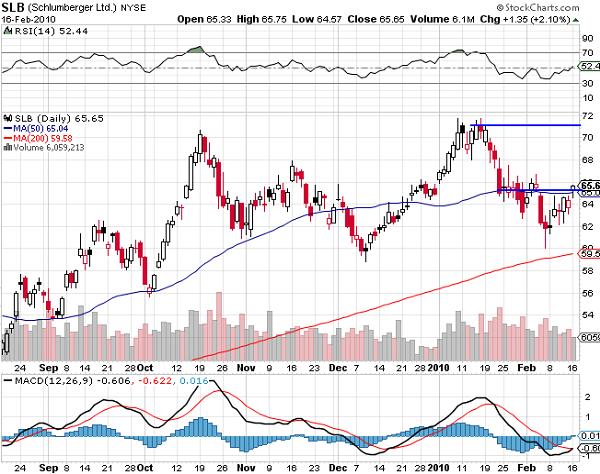
If you are new to stock markets, first you should get a clear idea about lot of aspects involved with stock markets. Trading in stocks is not just buying a few hundred or few thousand shares and selling them indiscriminately. If you are an individual, you are known as a private investor or a retail investor in financial markets. You will have to buy and sell shares or other financial assets such as currencies, bonds or commodities only through a registered stock broker. Stock brokers offer three types of services, namely execution only services, advisory services and discretionary services.
 Execution only services are quite cheap, since you will not be seeking any advice or investment management from the stockbroking firm. You take the decision of which stocks to buy, which ones you should sell and when you should do the buying and selling. You will normally deal with the stockbroker to convey the trading orders either over a telephone call or over the Internet.
Execution only services are quite cheap, since you will not be seeking any advice or investment management from the stockbroking firm. You take the decision of which stocks to buy, which ones you should sell and when you should do the buying and selling. You will normally deal with the stockbroker to convey the trading orders either over a telephone call or over the Internet.
When you utilize the advisory services of the broker, the investment manager will offer you sound investment advices either orally or through written communications. The third service is discretionary services, in which you allow the broker or the investment manager to manage your investment with complete freedom. The broker need not obtain your approval to buy or sell shares on your behalf. However, there will be a framework or a contract that specifies the terms under which the broker will be operating. You will be receiving regular reports on your investment portfolio.
How the Stock Market Works?
Since you have three ways of operating in the stock market through a stockbroker or an investment manager, you should know how the stock market works. Stock markets are a general term where the shares of companies are listed on specific stock exchanges all over the world. Stock exchanges can be physical locations where the market transactions take place on the trading floor in an auction type of approach to buying and selling. Stock exchanges can also be virtual locations, composed of computer networks and direct online electronic trading.

Stock markets are basically divided into two types, primary markets and secondary markets. When a business organisation issues its shares for the first time directly to the public, it is termed as initial public offering (IPO) through primary markets. However, the shares previously issued by the companies are traded freely in the secondary markets. Normally, when we talk about stock markets, what we invariably mean is the secondary markets. On most occasions, the company whose shares are traded in the secondary markets is not directly involved in such transactions but on occasions, the company can also buy or sell its own shares in the secondary markets.
The movements of the stock markets are either upwards or downwards. The upward movement is termed as bull market and the downward movement is known as bear market. Finance professionals and analysts call these movements as trends. A trend, whether up or down, can occur in a single day, can last for a week, a month, several months, or even a few years. The trends of various stock markets depend on the economic conditions of each country in which the stock markets are located.
How to Invest in Stock Market?
If you wish to invest in stock market, then you should get a thorough knowledge of the various factors involved in stock trading. Investing in a stock market is an exact science according to finance experts, where there is no place for personal emotions or intuitive decisions. When you invest in stock market, you have two types of trading options. You can buy at low prices and sell when the prices rise. Contrarily, you can sell when the prices are high and buy them back when they decline significantly.
Still, you should first understand the factors that directly influence the share prices of business organizations. Some of the factors are within the control of the companies but several others are outside their control. The financial performance of the company in the past, its future prospects, the policies and efficiency of the company management and the prospects and performance of the industry in which the company is operating are the factors that the company can possibly control through correct decisions and strategies.

On the other hand, political factors, economic conditions, funds availability in the stock markets known as trading volumes and other prevailing financial conditions are beyond the control of the company and share price movements also get extensively influenced by these factors. However, the most important and crucial factor that actually decides the share prices are the individual perceptions of the investors about all the above factors. This psychological factor can be positive or negative, resulting in a bull or a bear market. Your investment decision should carefully analyse all these factors and you should take an informed judgement by evaluating the impact of each factor on the prices of shares.
Stock Market Investing Tips
Majority of the investors buy shares when the markets move up and sell them when they go down. However, this is one of the biggest mistakes in stock market investing. The following basic tips about investing in stock markets should help you in perfecting stock trading and make profits instead of losing your money.
- The first point that you should learn in stock investment is that the individual stock is completely different from the market. The market may be falling but a good stock may be rising in value. Similarly, a bad stock can slide even when the market is flourishing.
- Past performances of a company or its share prices are not correct indicators of future prices. Great track records of the past do not always guarantee strong future performances also.
- Value of the share is not another criterion for buying stocks. A stock trading at $100 may actually be cheaper if its future prospects are much brighter than a share trading at $2 if its future performance is going to be poor. The returns on the former will be higher than that of the latter in future. Hence, the $2 stock will be costlier in the long run compared to the $100 share.
- You should assess the exact value of the stock and analyse whether it is under-priced or over-priced. Investors achieve this by comparing the share price with revenues, earnings, cash flows and other financial criteria. They also compare the industry in which the share of the company is operating. Industries with higher growth prospects will offer more value than those will mediocre growth or slow growth.
Stock Market Tips of Intraday
Intraday trading is what most fund managers, stock brokers and retail investors concentrate upon in stock market trading. Intraday trading is also termed as day trading. In this type of trading, you have to take a buy or a sell position on a specific stock and you should clear that position before the trading in the market closes at the end of the day. Since you have a few hours only between the first position and the second clearing position, you should be a real expert in deciding the starting and closing positions. The following tips may help you in intraday trading.
- In intraday trading, you do not focus on whether the stock market itself is going up or down.
- You completely ignore the market sentiments and the optimistic or pessimistic viewpoints of other investors.
- You are not taking into consideration the intrinsic value of the share or the fundamental strength of the company or even the lack of such strength.
- Your entire concentration is to predict whether the stock that you are selecting is going to rise appreciably within your trading time frame and whether it will decline significantly.
- In fact, all the standard procedures of analysing stocks for either buying them or selling them, such as fundamental analysis, technical analysis, insider information, etc. will not at all be of any use in intraday trading.
- Hence, by tonight you make a solid trading plan on the stock that you select for the next day, decide whether you are going to buy first and sell later or sell first and buy subsequently. You also set strict stop loss limits to protect your investment, if your judgement goes wrong for some reason. There is absolutely no scope for any personal sentiment in intraday trading such as hope, doubt, greed or fear.
Stock Market Tips & Tricks
Whether you try your hand at intraday trading or trade for longer periods like a week, a month, a year, etc., certain basic stock market tips and tricks are a must that you should follow to make profits and not lose your investment. The most important tips and tricks are as follows.

- You should remember that the stock that you buy is not just another piece of paper but your share in that company. Hence, you should know everything about that company including past and present performances and future growth potential, along with the ability of the management team in taking the company forward.
- You should decide your exact investment budget and make a clear decision whether you are going to stick with small cap stocks, purchase mid cap stocks or take a risk with high value large cap stocks.